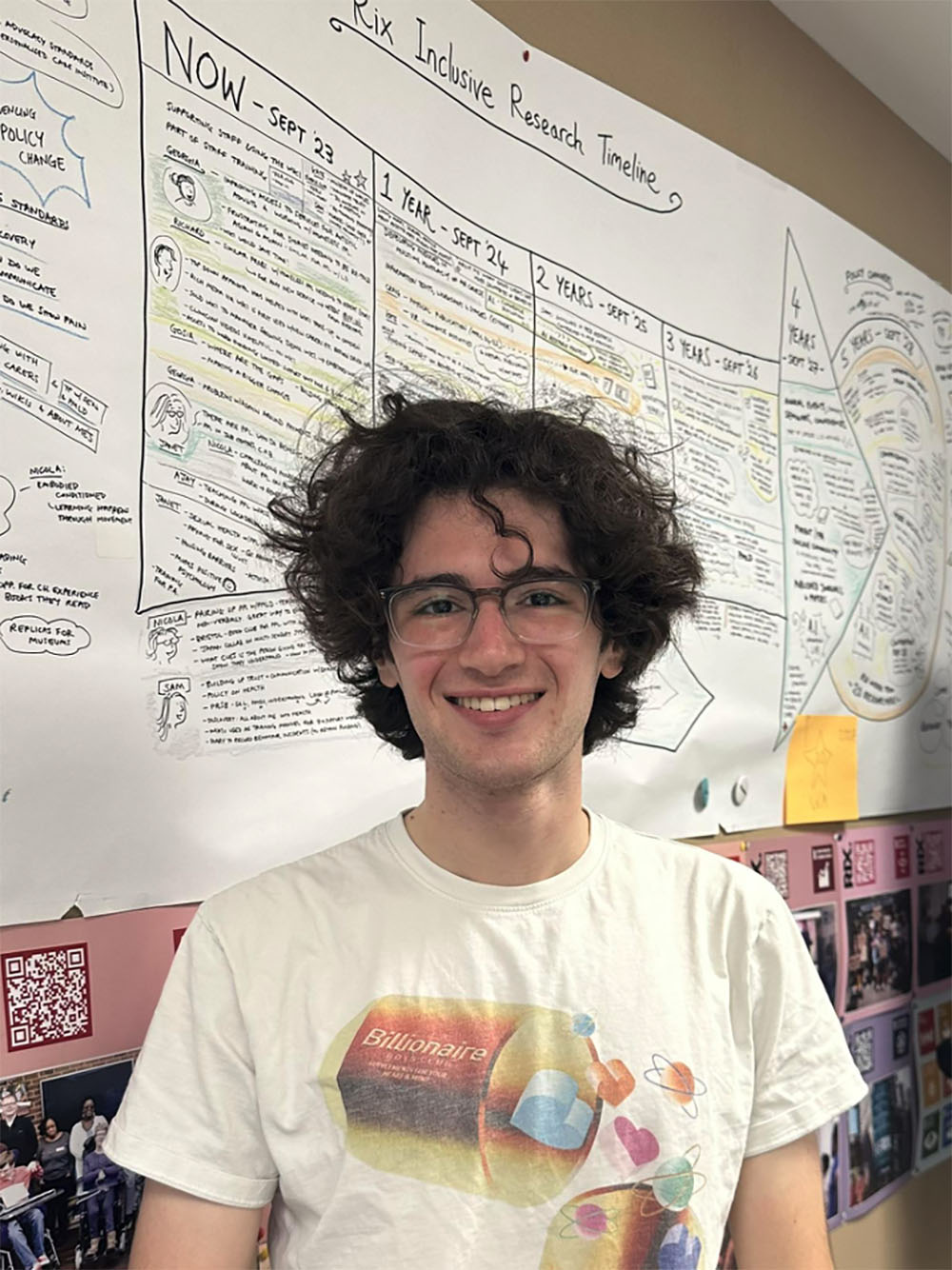Hi! I’m Harry, a third-year Design and Media Arts student coming across the pond from the University of California, Los Angeles. My academic interests mostly revolve around design, robotics, and how altering our environment can impact us. As part of my summer abroad program, I’ve been interning at RIX. I was brought on at first to help with developing tools for VR interfaces, but I’ve done so much more than just that.

My first day here was the morning of the 2025 Inclusive Hackathon, which was a bit of a hectic start to my internship. The week after, the University of Florida summer school students arrived. With them, I went around London and visited some fantastic examples of what disability education and research looked like in the UK. (I highly recommend looking up the PEARL Lab at UCL; it’s a mind-boggling facility.) It took a bit before I was able to experience the more day-to-day side of working at RIX, but I’m glad that I got to experience these events as my introduction: From the get-go, I understood what RIX does, what the group stands for, and why my work mattered.
Once I settled into a rhythm, I began working with Nic Hollinworth to work on the RixTalk Ruler, a device that allows people with visual impairments to still be able to accurately measure things. I developed a (relatively basic) Bluetooth Low Energy connection protocol to the ruler’s controller, a Raspberry Pi Nano-W, so that we could program the thing without having to plug into it and re-sync everything every time. After that, I prototyped a small PWM-controlled breadboard circuit that used the same controller to play some unbelievably low-quality music. It sounded halfway between a dusty record and a dead radio channel. We didn’t end up using it since it was a bit too scratchy to be comprehensible, but it was a fun experience, plus I got to send in my own parts order for the circuit’s electronics!
After I worked on the RIX ruler, we had some of our co-researchers visit to work on making VR technology more accessible. I asked them about what issues they were having with using the controller, wrote them down, and began development on my own project – a set of attachments that clipped on to the button interfaces of the Meta Quest Pro’s controllers to make the joysticks easier to turn, and to give the buttons on the surface of the controller more surface area to push. Using the makerspace in the building, I was able to run through eight prototypes in only a week, where I got all the dimensions, construction, and functionality tuned in. There’s always more that can be done, but as they are now, they’re entirely serviceable. This past week, our co-researchers returned to do more work with the VR headset, and I got to get some feedback from them on how my additions functioned! It was generally positive, which was great to hear.
Speckled throughout the weeks, I had some extremely enjoyable (and interesting) days where we had some special events. I got to meet educators and disability advocates from Egypt, British politicians, and fantastic people from the Tower projects, not to mention the wonderful class of students from the University of Florida, and all the attendees of Hackathon25. Collaborating with people with disabilities to learn from their experiences has been incredibly informative and has given me a new perspective going forward on how my design work and art can be perceived. I’ve had a fantastic time at RIX, and I’m thankful for the opportunity to work towards making a tangible, positive change in people’s lives.
Harry Lowy, CAPA Intern
